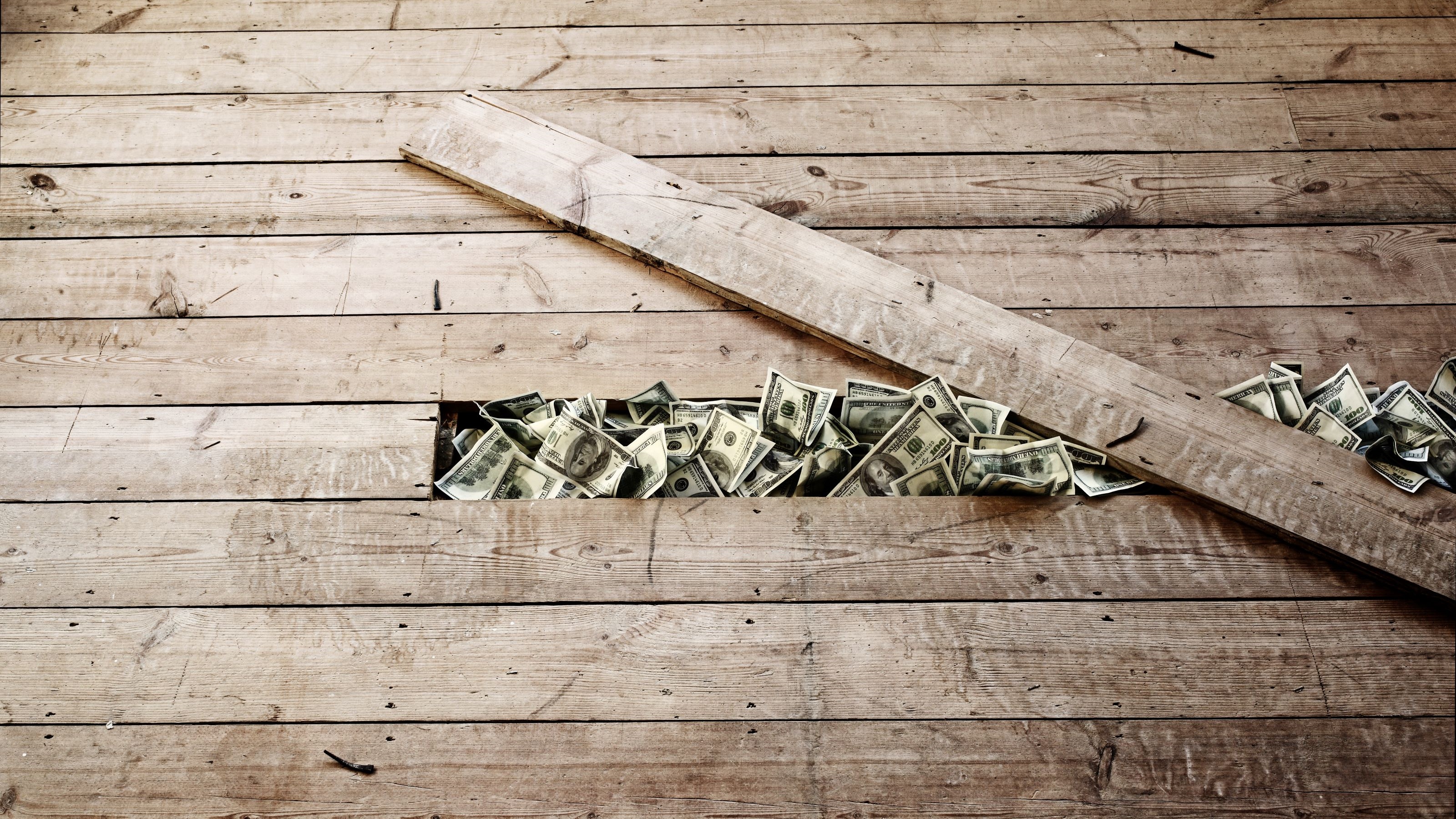
Profit and prosper with the best of Kiplinger's advice on investing, taxes, retirement, personal finance and much more. Delivered daily. Enter your email in the box and click Sign Me Up.
You are now subscribed
Your newsletter sign-up was successful
Want to add more newsletters?

Delivered daily
Kiplinger Today
Profit and prosper with the best of Kiplinger's advice on investing, taxes, retirement, personal finance and much more delivered daily. Smart money moves start here.

Sent five days a week
Kiplinger A Step Ahead
Get practical help to make better financial decisions in your everyday life, from spending to savings on top deals.

Delivered daily
Kiplinger Closing Bell
Get today's biggest financial and investing headlines delivered to your inbox every day the U.S. stock market is open.

Sent twice a week
Kiplinger Adviser Intel
Financial pros across the country share best practices and fresh tactics to preserve and grow your wealth.

Delivered weekly
Kiplinger Tax Tips
Trim your federal and state tax bills with practical tax-planning and tax-cutting strategies.

Sent twice a week
Kiplinger Retirement Tips
Your twice-a-week guide to planning and enjoying a financially secure and richly rewarding retirement

Sent bimonthly.
Kiplinger Adviser Angle
Insights for advisers, wealth managers and other financial professionals.

Sent twice a week
Kiplinger Investing Weekly
Your twice-a-week roundup of promising stocks, funds, companies and industries you should consider, ones you should avoid, and why.

Sent weekly for six weeks
Kiplinger Invest for Retirement
Your step-by-step six-part series on how to invest for retirement, from devising a successful strategy to exactly which investments to choose.
Saving money is an important component of a strong financial plan. Putting money away makes it easier to prepare for emergency expenses and achieve short-term financial goals, but how do you know where to save cash?
Before you get started, determine if you'll need the funds you plan to save: Avoid investing money you'll need to access in the event of an emergency or that you plan to use in the next year or two. For cash you are able to put aside, you want to ensure you keep it in the best place. Here are some of the best options to consider as you decide where to save your money.
Savings account
Savings accounts are among the most basic deposit accounts with a bank or credit union. Consider establishing your savings and checking accounts at the same institution for easy money transfers between the two. You can access both accounts through the same card at the ATM.
From just $107.88 $24.99 for Kiplinger Personal Finance
Become a smarter, better informed investor. Subscribe from just $107.88 $24.99, plus get up to 4 Special Issues

Sign up for Kiplinger’s Free Newsletters
Profit and prosper with the best of expert advice on investing, taxes, retirement, personal finance and more - straight to your e-mail.
Profit and prosper with the best of expert advice - straight to your e-mail.
You can also add a savings account to an existing debit card that comes with another direct deposit account. If you need cash, you can access your funds through a transfer to your linked checking account or with an ATM card.
Savings accounts typically offer interest on your deposits, but if you go with a traditional bank, you might not earn much. High-yield savings accounts, on the other hand, may offer interest upward of 10 times the average rate. These rates are typically reserved for savings accounts with online banks as well as at some credit unions and traditional banks.
Savings accounts generally don't charge monthly maintenance fees, but some may unless you maintain a minimum balance set by the financial institution.
Keep in mind, too, that savings accounts typically only allow you to withdraw funds six times per month. If you exceed that threshold, you may be charged an excessive withdrawal fee.
Money market account
A money market account acts as a hybrid between a checking and savings account. Like a checking account, you can access your money with a debit card, paper checks, an ATM card and bank transfers. And like a savings account, you'll typically earn interest on your deposits. In some cases, money market interest rates can be better than what you'd find in a high-yield savings account.
This option may be better than a traditional savings account if you want easier access to your money in case of an emergency, but money market accounts are more likely to charge a monthly service fee if you can't meet balance requirements. They also often require higher minimum deposits. In some cases, you might not earn interest at all unless you have enough money in the account.
Certificate of deposit
If you have some money you don't need access to for several months or even years, a certificate of deposit (CD) could be a good fit. A CD is a type of savings account offered by banks and credit unions. You generally agree to keep your money in the CD without taking a withdrawal for a specified length of time.
"It makes sense to put cash in a CD over a savings or money market account when one wants to commit to leaving the money in the account for a longer period of time and earning a higher return," says Michael Collins, founder and CEO of Wincap Financial and adjunct professor at Endicott College.
In exchange for higher interest rates on CDs, you'll need to lock up your funds for the account's term. For example, if you choose an 18-month term and try to withdraw money before the account matures, you'll be slapped with an early withdrawal penalty.
Unlike savings and money market accounts, CD rates are fixed once you open your account, so your rate won't change for the duration of your CD term. (CDs also typically come with a fixed savings interest rate, which is money you earn from the bank in exchange for leaving your money in the account.) There are no monthly maintenance fees for a CD, but you may need to meet a minimum deposit requirement to open an account.
Deciding where to save your money
Think about your financial goals and needs when it comes to where you want to save your cash. Research and compare several savings, money market and CD accounts to determine which one would be the best fit for you.
Whatever you do, avoid taking on too much risk with your short-term cash needs. "Investment accounts typically involve the risk of loss of principal and entail certain lock-up periods, both of which can be problematic if the money is needed in a hurry," says Collins. "It's best to stick to low-risk savings vehicles for emergency funds."
Related Content
Profit and prosper with the best of Kiplinger's advice on investing, taxes, retirement, personal finance and much more. Delivered daily. Enter your email in the box and click Sign Me Up.

Ben writes about all things personal finance, including consumer credit, credit cards, mortgages, student loans, investing and budgeting, as well as travel. Before his career as a writer, Ben worked in financial planning and insurance, banking and auto financing. After working as a staff writer at NerdWallet and Student Loan Hero, he started freelancing full time in 2018. Ben earned a B.S. in business administration with a finance emphasis from Brigham Young University. He lives near Salt Lake City with his two kids and two cats.
-
 Quiz: Do You Know How to Avoid the "Medigap Trap?"
Quiz: Do You Know How to Avoid the "Medigap Trap?"Quiz Test your basic knowledge of the "Medigap Trap" in our quick quiz.
-
 5 Top Tax-Efficient Mutual Funds for Smarter Investing
5 Top Tax-Efficient Mutual Funds for Smarter InvestingMutual funds are many things, but "tax-friendly" usually isn't one of them. These are the exceptions.
-
 AI Sparks Existential Crisis for Software Stocks
AI Sparks Existential Crisis for Software StocksThe Kiplinger Letter Fears that SaaS subscription software could be rendered obsolete by artificial intelligence make investors jittery.
